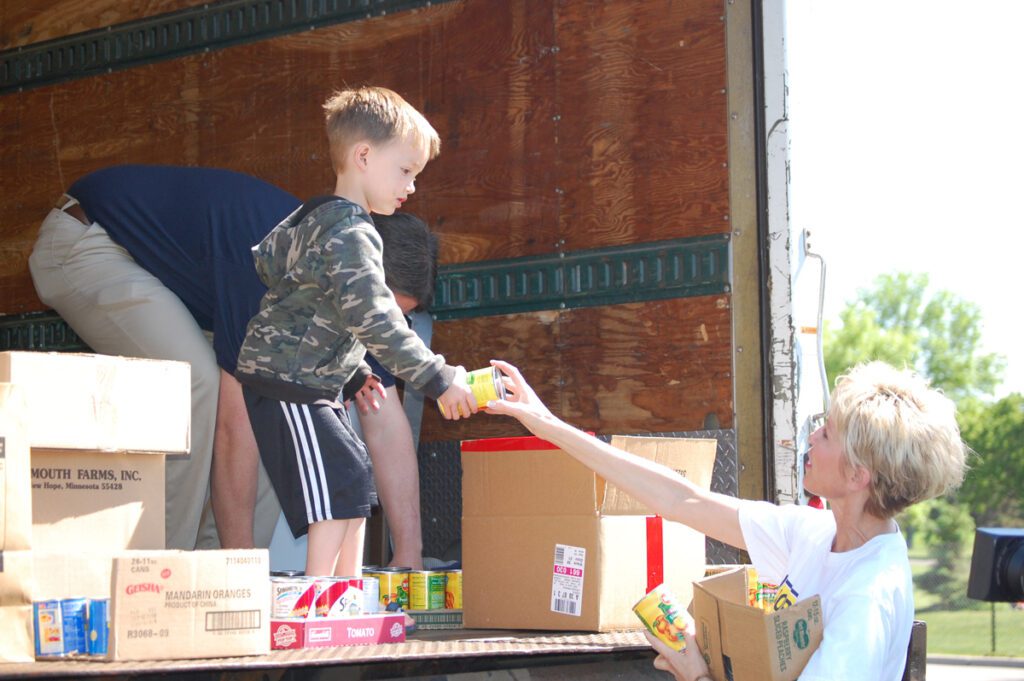The Table Has Always Been Sacred
Feeding someone is one of the oldest acts of hospitality in the world. It says: I see you. You matter. You are worth caring for.
In the ancient world, a meal was an act of honor. Of presence. Of love. When three strangers appeared at Abraham’s tent in the desert, he ran to meet them. He bowed low, called for water, and asked Sarah to bake fresh bread. He served them with urgency and joy. That story, recorded in Genesis 18, wasn’t just about divine messengers. It was about feeding someone as an expression of the divine.
In The Odyssey, Odysseus was welcomed with bread and wine long before his name is known.
Jesus fed multitudes with loaves and fish, and made breakfast on the beach for tired fishermen.
In The Hobbit, the adventure begins not with a sword, but with a table overflowing with food and fellowship.
When Ebenezer Scrooge awoke reborn in A Christmas Carol, his first act was to send a grand Christmas turkey to the Cratchits, a gifted meal that reflected his soul’s shift to radiant kindness.
And one cold Christmas Eve in 1914, soldiers on opposing sides of World War I laid down their rifles. They sang carols across the trenches. Then, cautiously, they emerged… and shared chocolates, tins of beef, and bread. In the middle of war, for one night, the table won.
Across myth, scripture, and history, feeding someone is the original expression of care. It is practical love. It is visible dignity. It is what people do when they believe the person across from them matters.
At MATTER, we believe that simple truth has shaped everything we’ve done for the past 25 years. It’s the origin of MATTER’s story, a belief rooted in faith that every person holds God-given worth, and that every act of kindness, no matter how small, can ripple out into real change.
What Do You Have in Your Own Two Hands?
MATTER’s story of feeding people didn’t start with grand plans or big strategies. It started in 2000 with two people, Dennis and Megan Doyle, asking a simple question: What do we have in our own two hands?
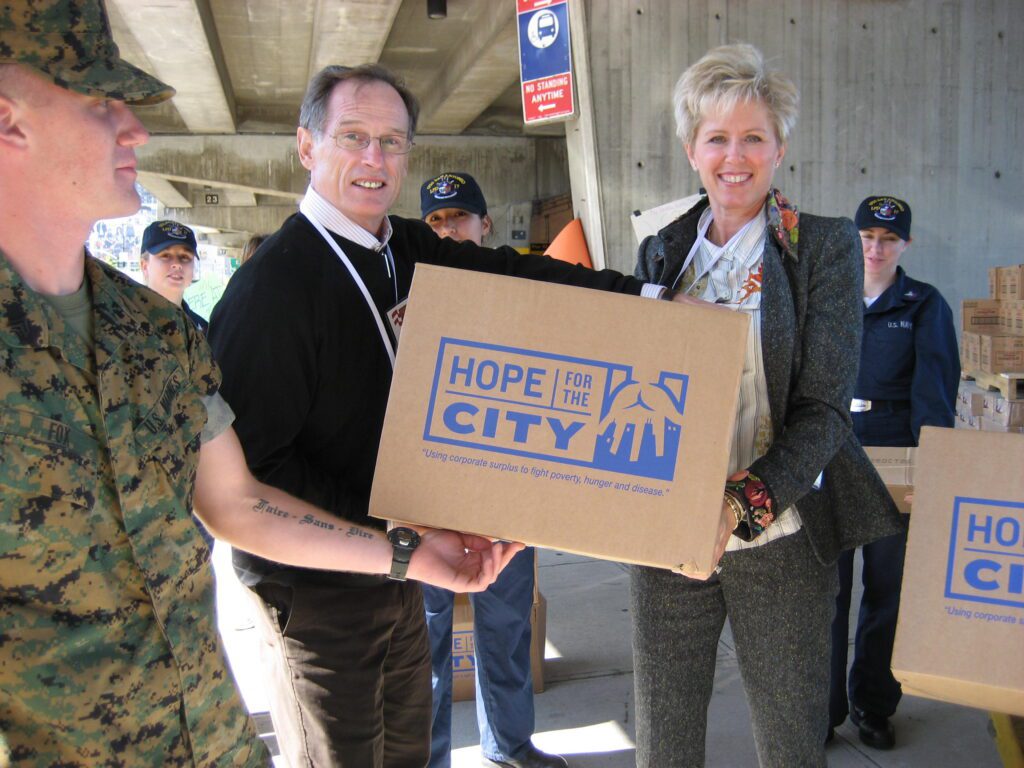
At the time, they saw a gap in their community: people quietly struggling. Shelves going empty. Surplus resources collecting dust. So they started gathering food and basic supplies, offering them to local nonprofits.
It was a simple conviction: if we step forward, the path will open.
They called it Hope for the City, and it quickly became a lifeline for dozens of local organizations. By 2003, they were coordinating twice-weekly distributions to more than 25 nonprofits. Everything was informal, nonprofits came to pick up whatever had been collected that week.
But then one August, there was no food.
“We didn’t realize how many people were depending on us,” Megan said. “We had to pause and ask: Are we ready to grow this? Will people support something like this?”
The answer came fast. In 2005, Hurricane Katrina hit. FEMA failed. Entire cities flooded. And within six weeks, Hope for the City coordinated the shipment of 125 semis of food, water, and supplies from Minnesota to the Gulf Coast.
Pallets of Water, food, formula. Someone stepped up with a donated warehouse. Someone else covered the trucking. Neighbors became partners. Community became a movement. People offered what they had in their own hands.
As Megan said: “God loves the poor and loves us when we feed them and take care of them.”
From Food Bank to MATTERbox
As MATTER grew, so did the desire and need to feed and impact communities across the country, in new and different ways. As the team looked at the landscape of hunger relief, they had noticed a gap.
Food banks were doing incredible work. But what about the families who didn’t have access to a food shelf? What about kids in after-school programs, community centers, or youth sports camps – places where meals weren’t always part of the programming?
That’s when MATTER created the MATTERbox.
“MATTER had identified that there was a gap in the food bank model for shelf-stable, beneficial meals that could reach people in non-traditional ways. So Joe [Newhouse] pulled together a few of board members who had experience in food retail and logistics – Mike Potter, Simon Foster, myself – and asked us to think differently,” recounted Brian Numainville, formerly with Nash Finch and a MATTER board member.
Together, they developed a new concept, the MATTERbox: Simple. Healthy. Scalable. Volunteer-driven.
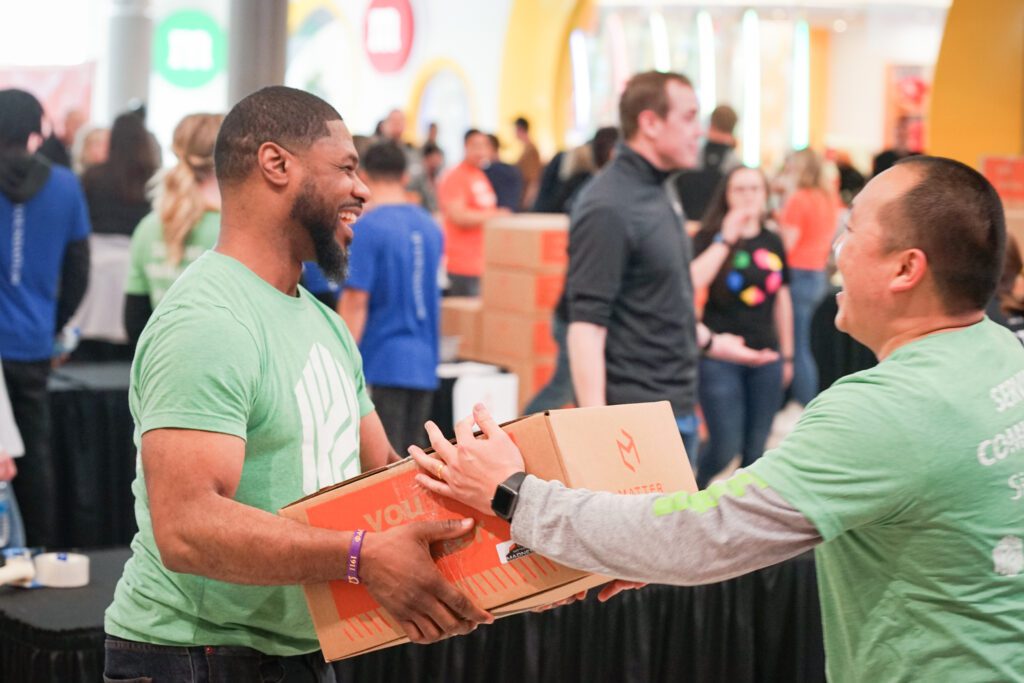
“We wanted something that was simple, differentiated, and impactful. And it worked,” added Simon Foster, founder of Simon Delivers.
Each MATTERbox was full of beneficial food that could be shipped to communities across the country, but it’s true power was the note inside, a handwritten message that says, “you matter.” It wasn’t just a meal. It was a message.
“We loved the employee engagement side,” Brian continued. “Packing Volunteer Kits became a way for teams to bond, to do something with meaning.”
Companies and volunteers around the country rallied to pack MATTERbox Volunteer Kits and feed kids and families in their own neighborhoods.
But the impact wasn’t just in the giving. It was in the receiving.
One day, MATTER team member Victor Salamone met with Jeff Huth, founder of the JP4 Foundation, a youth mentorship and baseball program in the Twin Cities.
“Victor asked me, ‘What’s your biggest hurdle as an organization?’” Jeff recalled. “I told him, ‘None of what we do matters unless I can figure out how to feed our kids.’”
Jeff had tried everything. Hot meals. Lunchables. Catered food. But it was always too expensive, too logistically complicated, or not kid-friendly.
Victor didn’t flinch. “Starting today,” he said, “Whether you have 4 kids or 400 in programming, they’re going to be fed. We’ll make sure of it.”
That moment, Jeff said, changed everything. “It removed one of our biggest barriers. No more chasing funding, managing logistics, or worrying about compliance. We could focus on what mattered most: showing up for kids. Since that day, MATTER has provided thousands of meals to our kids in St. Paul and Minneapolis. I can’t think of a better steward of this community than Victor and the team at MATTER.”
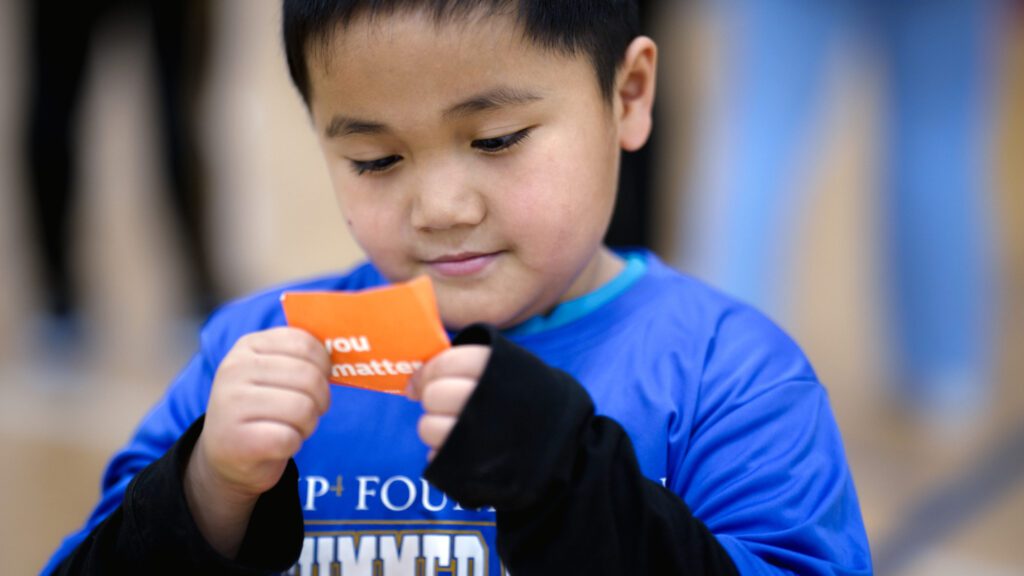
To date, MATTER has provided over 27.8 million meals to communities across all 50 states. All because of people in communities across the country, who have asked, “What can I do to help?” Whether it’s a group of employees gathering in a breakroom or a family packing kits at their kitchen table, the result is the same: A child, somewhere, gets a meal.
Feeding the World, One Meal at a Time
While MATTERbox reshaped food relief in the U.S., MATTER also saw hunger on a global scale, up close and undeniable. In rural clinics. In schools where learning was impossible without lunch. In villages where families went days without a real meal.
Early on, MATTER partnered with Feed My Starving Children (FMSC) to address these urgent needs. With their scientifically formulated meals and a shared commitment to dignity in delivery, this partnership became a lifeline for thousands around the world. Together, we’ve now partnered to provide more than 36.6 million meals to communities in crisis, nourishing kids in Zimbabwe, patients in Mozambique, and families in South Sudan. Meals that provided more than nutrition, they provided hope.
But just as hunger is persistent, so must be the solutions.
In 2022, MATTER donor and longtime partner Sandi Young asked a bold question:
What if we could put a dent in malnutrition? What if we could grow a solution ourselves, rooted in local soil, sustained by local hands?
That question became the idea of the Chaya Tree Project, a bold initiative to address malnutrition through one of the most nutrient-dense, drought-resistant plants on Earth. Known as the “green meat” for its exceptional protein content, Chaya thrives in arid conditions and has long been used to manage chronic disease and boost immune health. Today, it’s being planted in schoolyards and community orchards across Zimbabwe, feeding children, empowering women-led co-ops, and creating a sustainable, homegrown path to better health. What began with food boxes in our local neighborhoods has grown into something global, scalable, and rooted in dignity. Because whether it’s a MATTERbox packed by employees in Minneapolis or a Chaya meal shared by students in Chidobe, every bite tells someone the same thing: You matter.
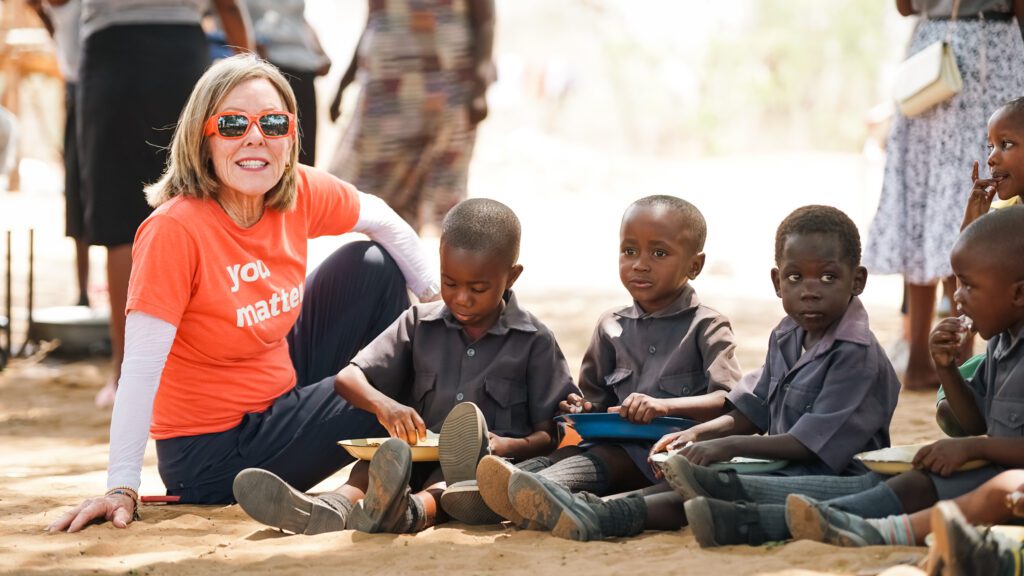
The Table is Still Set
This isn’t a story about MATTER. It’s a story about people who asked, “What do I have in my own two hands?”
People like Dennis and Megan. Like Jeff and the kids he serves. Like Sandi, who saw possibility in the midst of scarcity. Like the thousands of volunteers across the country who pack MATTERboxes and write You Matter notes.
It’s about the child who reads that note and feels seen. The parent who doesn’t have to skip dinner. The mentor who can spend time coaching instead of looking for food.
MATTER doesn’t feed people. People feed people. MATTER just helps make it happen. For 25 years, MATTER has simply been the conduit, the launchpad, for people who choose to act. People who believe that when you feed someone, you’re doing more than delivering calories. You’re delivering hope. You’re saying, you are not alone. I am with you.
As we look ahead to the next 25 years, we know the work will continue.
The needs will remain. And the people, the volunteers, the donors, the partners, will keep showing up, asking, What do I have in my own two hands? How can I help?
On September 27th, join us at our 25 Year Anniversary Black-Tie Gala, as we launch into the next 25 years of impact. A night designed to ignite ideas, inspire action, and launch projects that improve communities. Get your tickets HERE!
